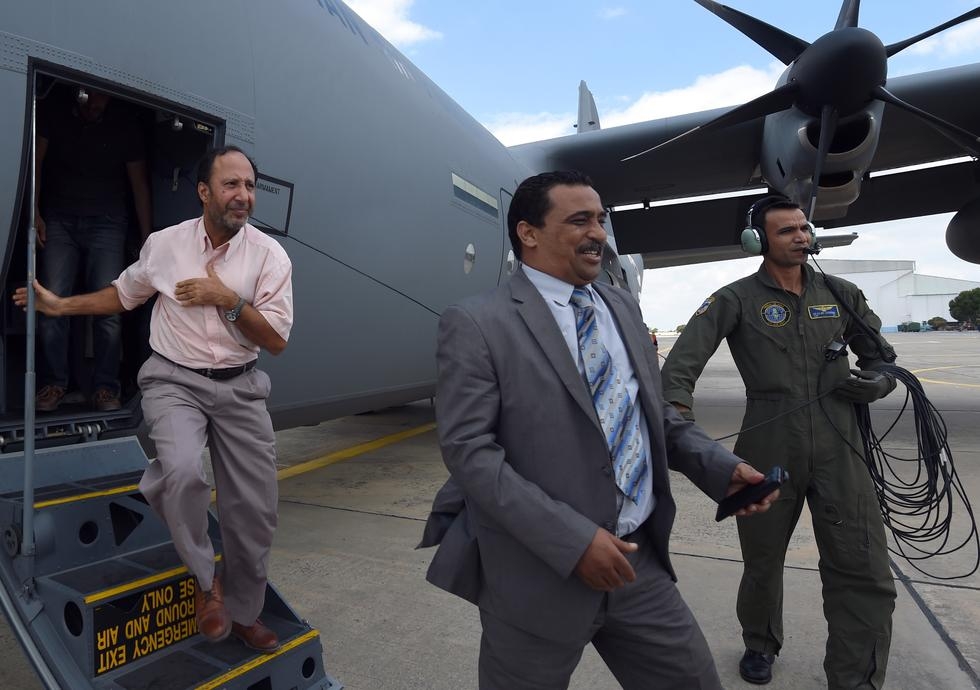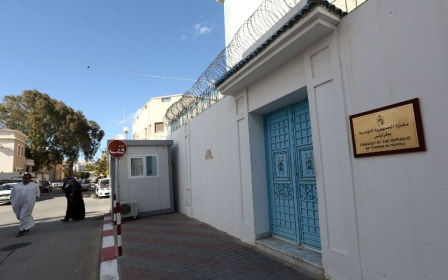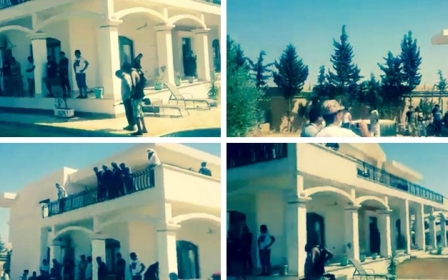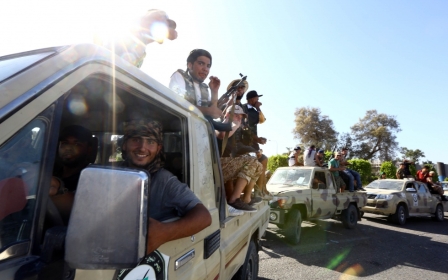Tunisia shuts Libya consulate over abductions

TUNIS - Tunisia said on Friday it was shutting its consulate in conflict-hit Libya as 10 staffers abducted by an armed militia in Tripoli returned home after a week in captivity.
"After this serious incident (kidnapping), we have decided to close the consulate in Tripoli," Tunisian Foreign Minister Taieb Baccouche told reporters.
"We will not reopen the consulate as long as protection for our civil servants is not guaranteed," he said.
"When that protection becomes available, we will rethink our options,” said Baccouche, whose country has a consulate in Tripoli and another in the east.
He was speaking at the L'Aouina military airport in Tunis, where several of the ex-hostages arrived on Friday morning.
Ex-hostage Jamal Saibi related to reporters how a group of armed men had stormed the consulate last week, rounding him and his colleagues up.
"They took us out of the building, put us in cars and drove us somewhere along the airport road," he said.
Baccouche had earlier announced that the 10 staffers had been released - three of them on Wednesday and the rest on Friday.
He said that now all 23 consular workers who were in Libya are back home and safe.
Saibi said the staffers were abducted because the gunmen wanted to press Tunisian authorities to release a jailed Libyan militia chief, Walid Glib.
Tunisian officials and media reported that Glib, who was arrested last month in connection with "terrorist" activity, was released on Friday.
"He left prison Friday at dawn," director of prison facilities Ridah Zaghdoud told AFP.
Baccouche denied any deal was struck with the kidnappers in exchange for the release of the consular workers.
"We will not accept extorsion," he said.
Last month, militiamen allegedly linked to Glib seized 245 Tunisians in Tripoli to press for his release. They subsequently freed them unharmed.
Foreign citizens and missions have been frequently targeted in Libya, including in Tripoli which was overrun last year by the Fajr Libya militia following fierce clashes with rival militias.
The fighting sparked an exodus of foreigners, and many embassies were shut as Fajr Libya installed a government last year opposed to the internationally recognised administration.
The Islamic State (IS) group has taken advantage of the chaos to gain ground in Libya.
IS claimed responsibility for twin attacks in April, one on the South Korean embassy that killed two Libyans and another on the Moroccan mission that caused no casualties.
In January, the Libyan branch of the armed group claimed the killing of two Tunisian journalists who had gone missing in eastern Libya eight months earlier.
And last year a Tunisian diplomat and an embassy employee were kidnapped by an armed group before being released.
Libya descended into chaos after a revolt unseated and killed longtime Libyan leader, Muammar Gadaffi, in 2011.
It now has rival governments and parliaments, as well as powerful militias battling for influence and a share of its oil wealth, including the Fajr Libya militia alliance that controls Tripoli.
The self-declared government in Tripoli, backed by an array of allied militia groups, is not recognised as the legitimate government by the international community.
New MEE newsletter: Jerusalem Dispatch
Sign up to get the latest insights and analysis on Israel-Palestine, alongside Turkey Unpacked and other MEE newsletters
Middle East Eye delivers independent and unrivalled coverage and analysis of the Middle East, North Africa and beyond. To learn more about republishing this content and the associated fees, please fill out this form. More about MEE can be found here.




